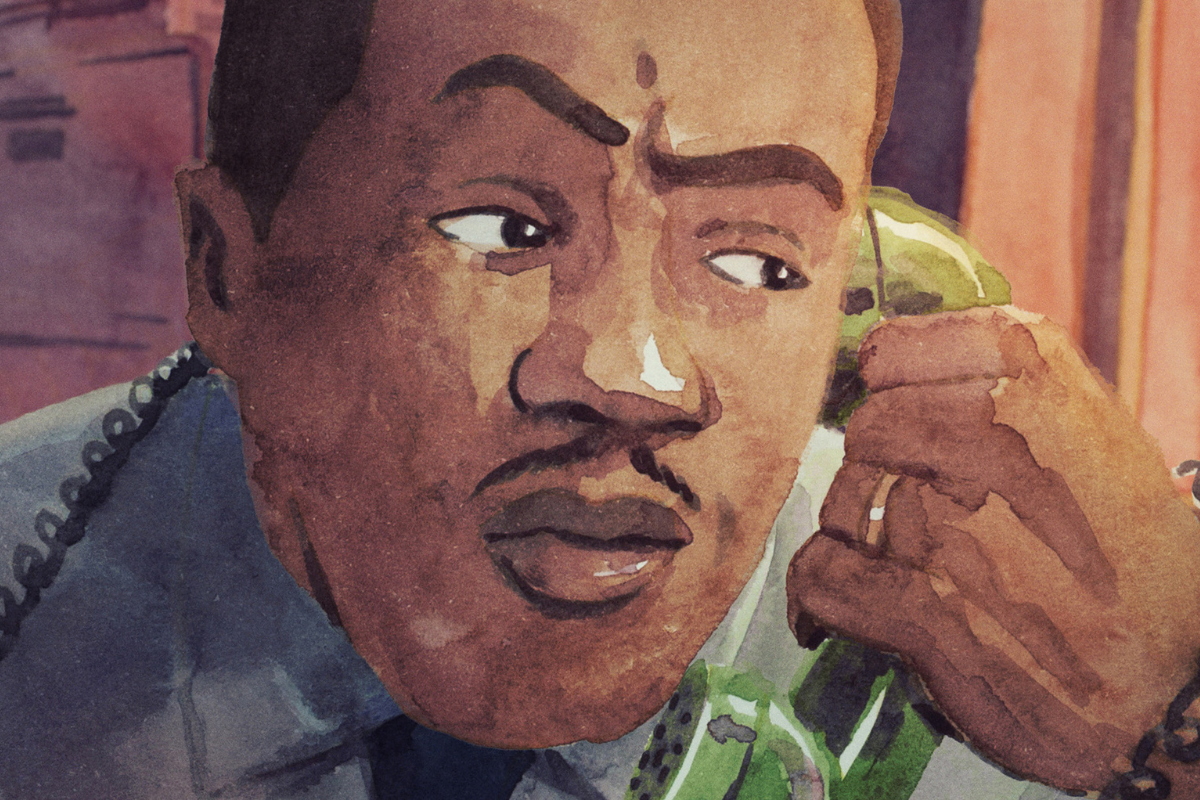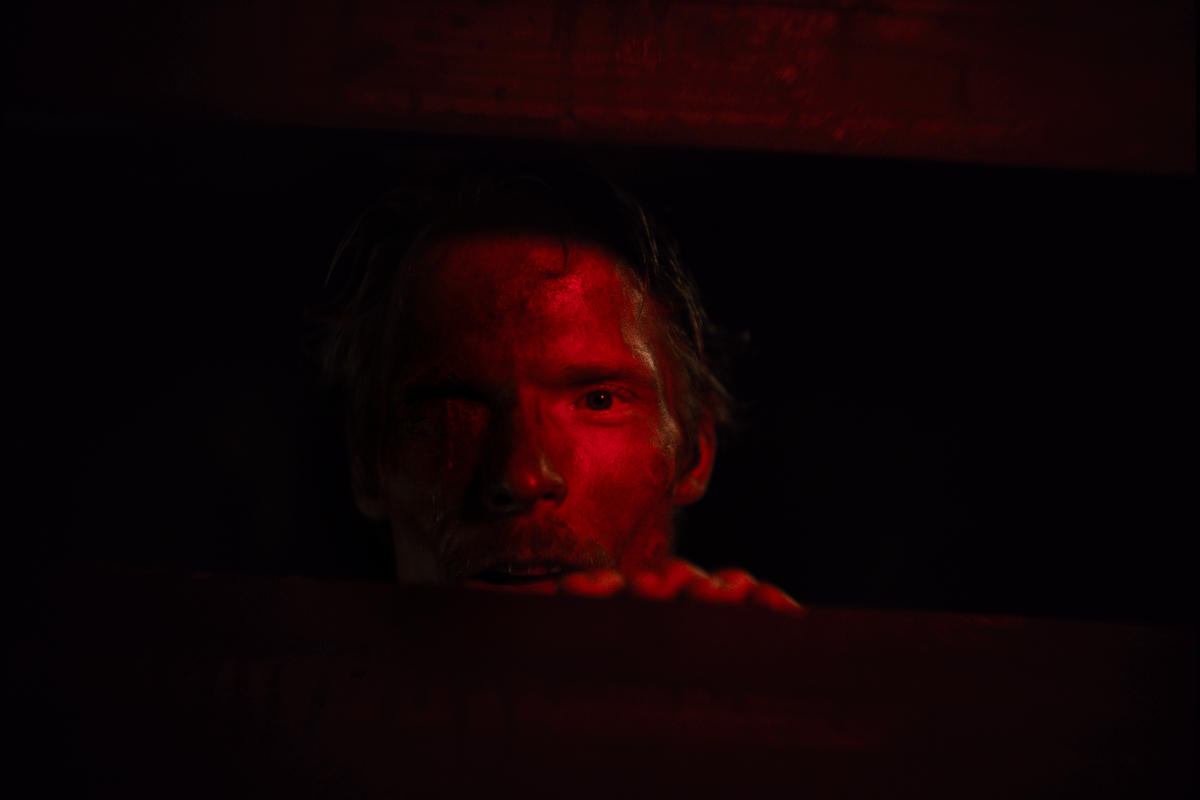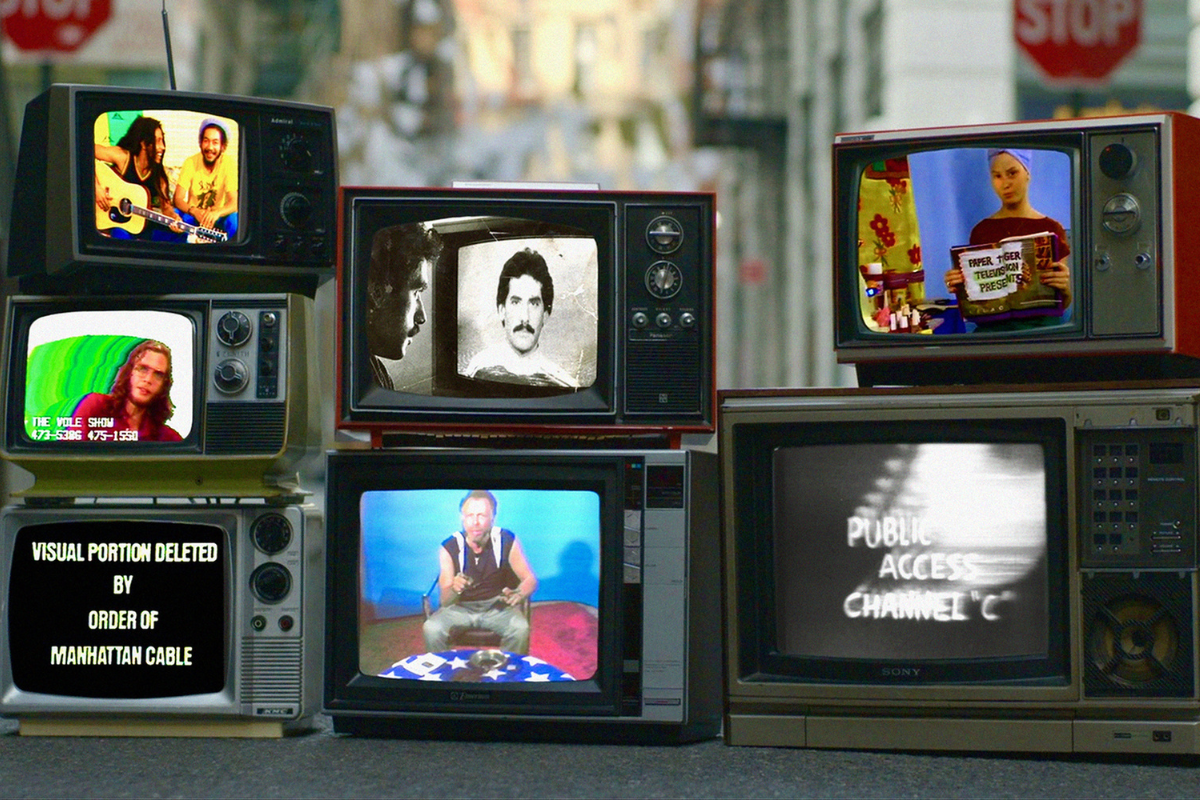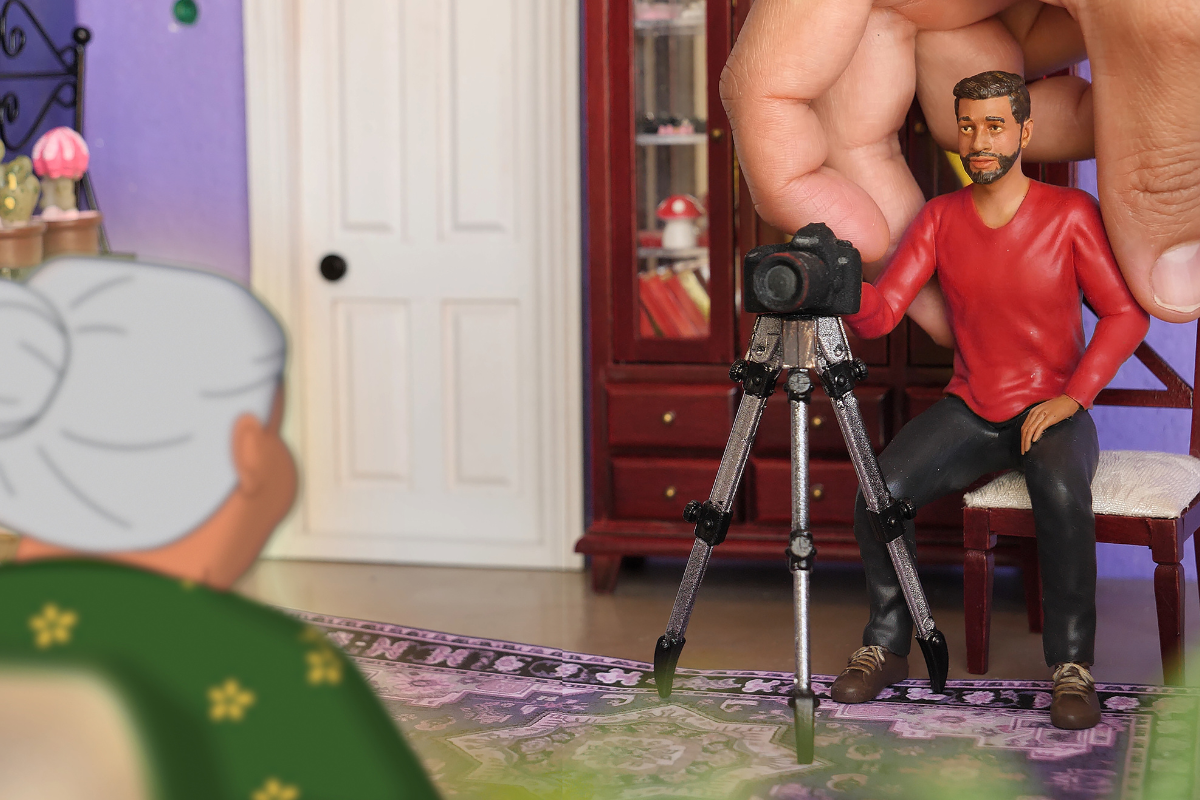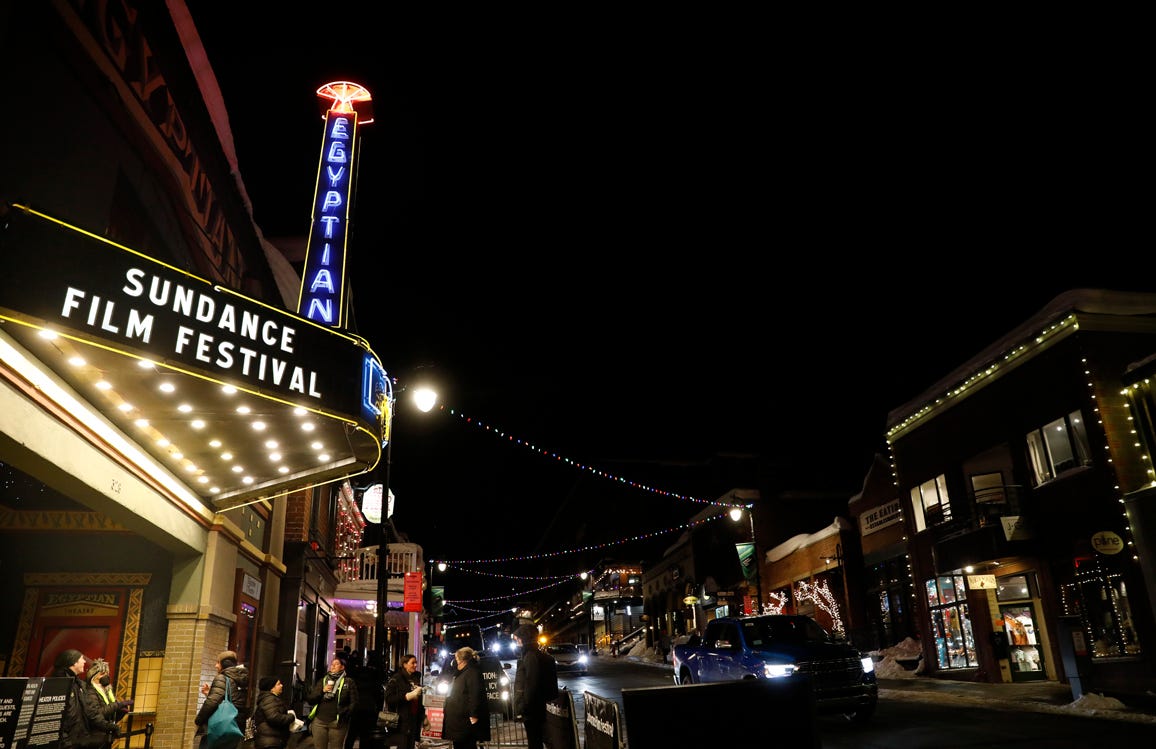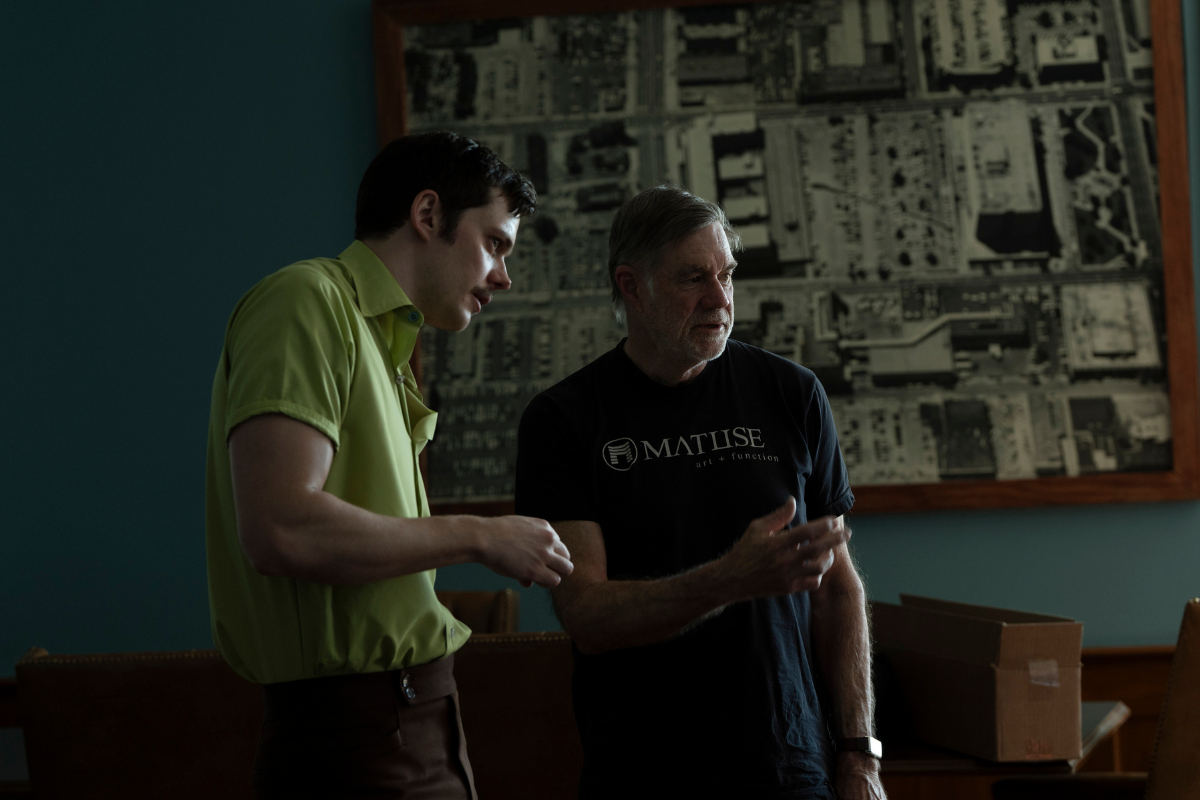Keep Things Simple as a Storyteller and Trust the Process: A Conversation with ‘Warhorse One’ Filmmaker and Actor Johnny Strong
Johnny Strong, the creative force behind Warhorse One, shares with Script his personal process and approach to storytelling in all of his various art form endeavors, how he utilized personal moments that imbued this particular story, crafting the film score, and so much more.
Warhorse One follows a desperate civilian rescue attempt set in motion shortly after the 2021 withdrawal of the United States military from Afghanistan. After a SEAL team helicopter is downed en route to the rendezvous point, the lone surviving operator must evade hostile insurgents and navigate treacherous terrain while guiding his one remaining charge—a traumatized young girl—to safety.
Warhorse One is not your typical action-packed war film - and slight spoilers - because it's not. Johnny Strong pulls no punches and leaves no stone unturned for audiences and film buffs alike. The simplicity behind his approach to storytelling is the foundation for a character-driven story, with little to no dialogue, the eyes to these character's souls is what carries this story through - something similar echoed in silent films from yesteryear.
Johnny Strong, the creative force behind Warhorse One, shares with Script his personal process and approach to storytelling in all of his various art form endeavors, how he utilized personal moments that imbued this particular story, crafting the film score, and so much more.
This interview has been edited for content and clarity.
Sadie Dean: Totally fine. Cool. All right. Well, we will dive in Johnny. It is such a pleasure to meet with you and Chad. And I'm excited to just take your brain about storytelling and writing and everything you did on this epic movie that you made. Cool. Fantastic. Cool. Awesome. So yeah, let's just start from the top here. I'm so curious about where this story idea came from. And when in the mix. Did your co writer and director come into the mix for that I received there at the very beginning with you.
Johnny Strong: Well, a few things to unpack there. The first thing was, there was this beautiful moment I had with my daughter - it was my firstborn child, and for the first two years, they're this little potato, and they're the greatest thing in the world, and you have this kind of primitive, instinctual thing to know that you're there to protect this little thing. But then around two and a half years old, I was making her breakfast one day in my kitchen, and her and I had our first like, real connection, like conscious connection, you know. And it was life-changing for me. This event where you are this man before that moment, and then who you become after that moment, where you realize, prior to that, it's like, kind of, I don't know, it's hard to explain that period, it's like you're coming out of this, you know, the first stages of your life. And then after that moment, where you realize you would suffer every pain gladly for this little girl. So, that was the origin of that moment.
And I had this kind of lightning bolt moment where I was like, How do I share that with the world? How do I get to share that moment, like, who a man is before that and who he becomes after that? And so a few iterations of one idea and the other and then I woke up one day - being an actor in the movie, business, people pitch you ideas and scripts, and all that kind of stuff all the time, and I I just wasn't satisfied. My whole goal of my life has always been since I was a little kid to be a filmmaker, not a participant. Which there's nothing wrong in that, it wasn't for me, my spirit wasn't satisfied or gratified by participant role.
So, I woke up and I told my girl I said, 'I'm done entertaining these ideas. I'm just gonna do my own.' So I kind of had a, I'm just going to do at the moment, and I called a fella that I had worked with a few times on some of his movies. And I said, 'Hey, man, I'm going to make a movie. Do you want to make a movie with me?' And he was like, 'Well, what do you have in mind?' I go, 'Well, it's me being chased through the mountains by bad guys, that type of thing.' Because I like to keep things simple as a storyteller, like, a lot of times, I think people get caught up in the details. I moved into a home almost 30 years ago, and the occupants had left a giant, poster board poster of Einstein's face, and it has his quote, 'I want to know God's thoughts, the rest are details.'
And I didn't really quite understand it until Ridley Scott and I were at the premiere of Black Hawk Down, and we were standing there talking with each other, and he was just kind of like pontificating on the concept that some of the critics were saying about Black Hawk Down like you couldn't tell who anybody was, there was no individuality. And he said, 'When 150 Rangers hit the street, you won't recognize anyone.' And he goes, 'That's a great quote.' And he started the quote it and I kind of cut him off. And I was like, Yeah, 'I want to know God's thoughts, the rest are details.' It's Einstein, he was trying to figure out who it was.
And that moment, I realized, I think there's this great concept if you go into a script, where you go, let's break it down as simply as possible. And then you can start to make it more complicated if necessary, or if it wants to be. A lot of times with art, my philosophy is Let it be what it wants to be a song or a scene or character or script or whatever that might be. There's a spiritual component with artistic creation where I think sometimes artists get in the way of a natural progression of art.
So, I pitched him this idea and he said, 'Alright, yeah, I'm in. Let's do it.' And then he said, 'Hey, you remember that other idea you had about you and the little girl, maybe you kind of blend that component in.' And so I took a few of my ideas and blended them into the story. And it was, again, one of those moments in life, if you allow the universe to curate the path in front of you, it will do it all by itself without your help. So, that's how it came about.
Sadie: That's, and I love that whole backstory, though. Because it's, you know, as an artist, you I think, artists, if you may think of, how am I going to market this thing or myself, and that just let the thing be the thing and feel it and let it do its thing? And, you know, sometimes you got to sit on it for a little bit for it to come alive.
Johnny: It's a life of its own, it's a being unto itself, and it continues that journey all the way from the creators to the audience. Yeah, try not to get in the way. I'll tell you what, the whole process is magical. This life is like this magical thing, and I'm so, pardon my expression, but I am so fucking blessed to have this life. And that's, to me I think, the reason why I create, because it's the closest connection I have to the Creator, or the Universe, or the spiritual realm - and it was like a magical, full circle thing for me.
I screened the film two nights ago in Los Angeles. And a friend of mine who I've worked with for over 20 years - and after the film - at the end of the film, you can see my name all through the credits, and I had to make a decision, ‘Alright, do I just stack up all the things that I did and put my name once? Or do I try to pepper it in there to mix it up a bit? So, I peppered it in that's what and he goes, ‘Man, you should have showed up with a hat and cane because you're fucking Charlie Chaplin!’ And the crazy thing is, I had not talked to him prior to this event, but Charlie Chaplin was always a sort of a hero figure for me on his work on the work side, he was a little sketchy in his personal life, I guess. But because I'm a musician, an artist, an illustrator, writer, director, actor - I just love to create.
And so, Charlie was this kind of beacon of hope for me that I was able to do that at some point, rather than be this compartmentalized participant. And the crazy thing was he worked on the Henson lot, which if you know anything about the Henson lot, that used to be Charlie's place, it was his home where he made his movies. So, it was this full circle moment.
And the crazy thing was my connection with Charlie, the first time I got the glimmer of hope that I could do what I wanted to do was when I first saw his film, The Kid, which is still one of my favorite movies, and one of the first movies that I've introduced to my daughter, and said, ‘Hey, do you want to see this great movie about this guy in this kid?’ And there's a lot of comparable aspects to my film Warhorse One to The Kid, about a man who has this life prior to this moment where he has to become the protector of this child.
Sadie: I love that filmmaking and storytelling parallel between you and Charlie Chaplin. What was your writing process for the screenplay and composing the score for this. What came first?
Johnny: So, the writing was easy. I got the first 50-60 pages out in three days. Because I try not to get in the way, like I was saying. And that's the other thing, a lot of times when I talk to people about what I've done, it's not me, I'm just this filter that it's coming from the creative atmosphere, like just through me. I think beautiful ideas and magical moments are like, fossils, hidden deep in the ethereal realm where just a select few people get to be open enough to tap into it. But yeah, 50-60 pages in three days, I wrote it.
And then with my co-director, he realized he was coming on to this project to help me make the movie I wanted to make, but I wanted to open the participation side to him as well because sometimes if you're like, ‘Hey, I'm doing this thing, I just want you to do XYZ’ for other people, that may not be really interesting or unsatisfactory. So, I opened that up to him, and he would send me some stuff, and then I would go in and kind of curate it and go, ‘Yeah, that's cool. But I'm not sure about this.’
And I'm a real stickler on dialogue. With dialogue, my personal process is like, or just in art in general, everything I do is I'm trying to find the truth, the most authentic place where everything can be; whether it be the music, or the dialogue, or even when I'm in front of the camera. My journey is to find the tone. And I think our life is surrounded by vibration and energy and tone. And so, I'm always in search for that. So, if I read dialogue, and I read it out loud, and this is by the way this is my way, I'm not saying it's the right way or the correct way, but for me, I look at it and go, ‘Is that the tone? Does that set the tone?’ Even if it's one word, like, ‘No, it has to be this word in front of that word.’ It's a very specific thing.
There's a specific line in the film where I was talking about why the good guys are the bad guys and I wanted the audience after America being in this country for 20 years and having the administrations go to these wars for 20 years, and how many times we've heard about why are these the bad guys – I tried to simplify it the best I could, again, going back to the simplification process, which is, if you're intentionally killing innocent people, then you are the bad guys, right?
And to me, I remember shooting that, and it was so hot, and I climbed up to like 1,000 feet, and we're there and I'm trying to deal with Athena [Durner] to make sure she's comfortable, and stay focused and I remember I did a take, I said something to the effect of, ‘Yeah, well, if you're killing innocent people, then you're the bad guy.’ And I remember my brain almost punched itself, because I was like, that's not it. So, that's how it started. I kind of laid out the thing, put the story components in, and then I invited my partner into kind of participate with that.
And the music side to me is the same process. So, the main theme of the film came from - I had a small skeleton crew, my co-director was now done shooting what he had shot, and it's just me and my own skeleton crew shooting the rest of the film. And we went and shot the sequence where I'm getting out of the water, like surviving this thing, spoilers..but it's my family in the car, driving home from set, and then all of a sudden, coming from wherever the tune started to permeate. And we all started kind of humming it in the car like the Von Trapp family or something, I mean, it sounds ridiculous. But this is what happens in my life, these ridiculous moments where you're like, ‘Get the fuck out here. No way that can't be real.’
And I remember getting home and going right into my studio and starting to work on it. I've collected instruments over the years, my great-grandfather was a vaudevillian, and so was my great-grandmother. And so, I have their banjo, I have their fiddle, I have a bunch of these instruments that were made in like the early 1900s. I put the pieces of the score together.
At the end of the film, I was like, I think there should be a dénouement in the movie where we get something more. So I remember I have it on my screen and I'm just kind of playing this piano and I start singing something. And it's the strangest thing because it doesn't sound like English. It sounds like something else. And it turned out I was singing Latin. And I contacted an expert in Latin English translation, and I said, ‘What does this mean anything in Latin?’ And it turned out that it means ‘God, my protector,’ or ‘God my guide.’ And so I was like, ‘Oh, that's awesome. I'm gonna write something along the lines of that.’
So, I contacted this vocalist, and she sang a version of it…and said, ‘I need you to do it again, because I need you to really feel what you're singing.’ And she did it again. And it was like this miracle moment, where I was listening, and just tears started rolling down my face. And I was like, ‘That's it.’
Sadie: It all goes back to letting the process do its thing, and it will find its way. And I love that you do have that ending because, in another version of this film, you’d cut to black, but we the audience needs that resolve. And how you’re able to capture that with basically four simple shots at the end. That’s all you need.
Johnny: I love you. I love that you just said that. That is the whole purpose - what a magic moment. And I remember my co-director, he's like, ‘Are you sure man?’ Without it, it's not the same film, right? It's not the same story. It's so fucking magic. So, I love that you said that. That's awesome.
Sadie: I just really appreciate it when movies do that. It's that simplicity to it.
Johnny: Right, like those couple shots I put together. And that was all the afterthought of going, I need just this shot.’ I don't want to spoil anything...But there's a simplicity to it. And that's always what I tried to do as a creator. If I feel like I'm getting in the way or it's getting too complicated, like stop the car, get out, go back to the beginning, and just try to simplify it.
Sadie: I felt like the girl is kind of like his MacGuffin, trying to save this ‘thing.’
Johnny:
Sadie: And then there’s that reversal of when she's trying to protect him at the very end.
Johnny: When I wrote that little bit it was that journey, and I love that you said that, fucking awesome, I love talking to people that know about storytelling, and screenwriting, and the film process, because there's so many little things I did in the film that you talk to normal people that see the movie and they're touched by the movie - this is the beautiful thing about this film, is everyone is expecting, and I don't want to spoil it, but an action movie and good action is very difficult, but I Trojan horsed this film. In order for me to make it a successful film, if I tried to make a love story, and sell it independently, that's a hard road. And I know so many of my contemporaries, that have put just so much time and energy into doing something like that, and just watching it die in the distribution process. So, I was like, ‘Alright, I gotta sneak this in somehow’. But it actually worked out in the best way.
A lot of my best friends are ex-military or ex-Special Forces, and seeing the things that they've gone through over the last 20 years of being in combat, and some of the psychological effects of that, that they bring back to their civilian life. You know, I thought to myself, because you make a film, you have a story, but you go, ‘What's the message?’ There's a few messages in the story. But the thing I wanted to do that a lot, not many filmmakers do on this type of material is talk about how the children are the ones who bear the suffering. And the accompaniment to that is how these young men and women that are used in conflict are unfortunately abandoned in a lot of ways at the end. And they have to deal with this, the psychological after-effects of that.
One of the greatest things I can tell you is sharing this with former military or former servicemen, especially the Special Forces guys, because I shared it with a guy named Rob O'Neill, he's one of the guys that was responsible for the Bin Laden raid…one of the things he said, which was so awesome, and moving for me was, ‘Man, I can't wait to talk to you tomorrow about the movie’ - we're gonna podcast - and he goes, ‘Man, the movie is incredible.’ Hearing that, first of all, is awesome from a guy like that, because these are the guys I relate to and I'm friends with. And he goes, ‘I'm glad I watched it by myself, because I wouldn't want anybody to see me releasing that.’
Sadie: That’s incredible. Now having gone through the process of making this film from soup to nuts, wearing many creative hats along the way, and now you have the sequel in the works, what did you learn from this film that you're going to carry over into this next one?
Johnny: I would carry over trust your instincts as a creator. Trust the universe that it's going to guide you. If you allow the current to do what the current does. And if you're in the current, you'll wind up where you're supposed to be. If you fight it, or you don't trust the process, you will experience a lot of hardships. But I'm going to do the same thing. This time, though, I'm probably going to direct it myself. I've already written the script, and we're probably gonna start shooting next June.
Warhorse One is now out in select Theaters and is available On Demand and Digital on July 4, 2023.


